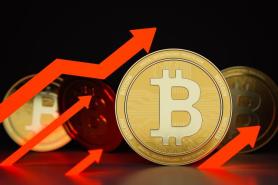
With an estimated 10 million South Koreans actively trading crypto, both front-runners have made digital asset policy central to their campaigns.
Lee Jae-myung’s camp has formed a digital assets committee tasked with drafting comprehensive legislation, while Kim Moon-soo has proposed incorporating stablecoin regulation into a broader financial reform agenda.
The candidates contend that South Korea must act swiftly to counter the growing influence of foreign-issued stablecoins, which are increasingly used for cross-border payments and decentralized finance platforms.
Stablecoins — digital tokens typically pegged to fiat currencies like the U.S. dollar or euro — have gained traction globally for their potential to enable faster, lower-cost transactions while promising greater price stability.
Yet the proposals have met with sharp scrutiny from monetary policy experts and financial regulators, who warn that privately issued won-backed stablecoins could encroach on sovereign monetary authority.
Analysts argue that granting such power to non-governmental entities risks undermining the Bank of Korea’s control over the money supply.
“There is a fundamental question of whether private issuers should have the ability to create won-denominated assets that effectively function as currency,” said Professor Park Sun-young of Dongguk University. “Without rigorous oversight, the risks are significant.”
Skeptics also question the practicality of a won-based stablecoin, noting that the South Korean currency lacks the global demand enjoyed by the U.S. dollar.
As a result, adoption of won-backed tokens beyond national borders would likely be limited, potentially constraining their utility in global crypto markets.
Industry insiders further warn that unchecked issuance could introduce new risks to financial stability. A surge in redemptions — akin to a digital-era bank run — could trigger liquidity crises, as seen in prior cryptocurrency collapses. Professor Park pointed to past failures stemming from inadequate vetting of token issuers as a cautionary tale.
Concerns about illicit activity are also rising.
A 2024 report from blockchain analytics firm Chainalysis found that stablecoins were involved in approximately 63 percent of global crypto-related illicit transactions.
Despite these concerns, both candidates are also pushing for regulatory changes that would allow for spot cryptocurrency exchange-traded funds (ETFs), which would enable South Koreans to invest in indices tied to bitcoin and ethereum through traditional stock exchanges.
Current financial law prohibits virtual assets from serving as underlying components of ETFs.
While crypto ETFs could broaden investor access to digital assets, regulators remain wary that they could siphon capital away from domestic equities, potentially undermining broader efforts to strengthen corporate governance and boost shareholder value in local markets.
Copyright ⓒ Aju Press All rights reserved.




